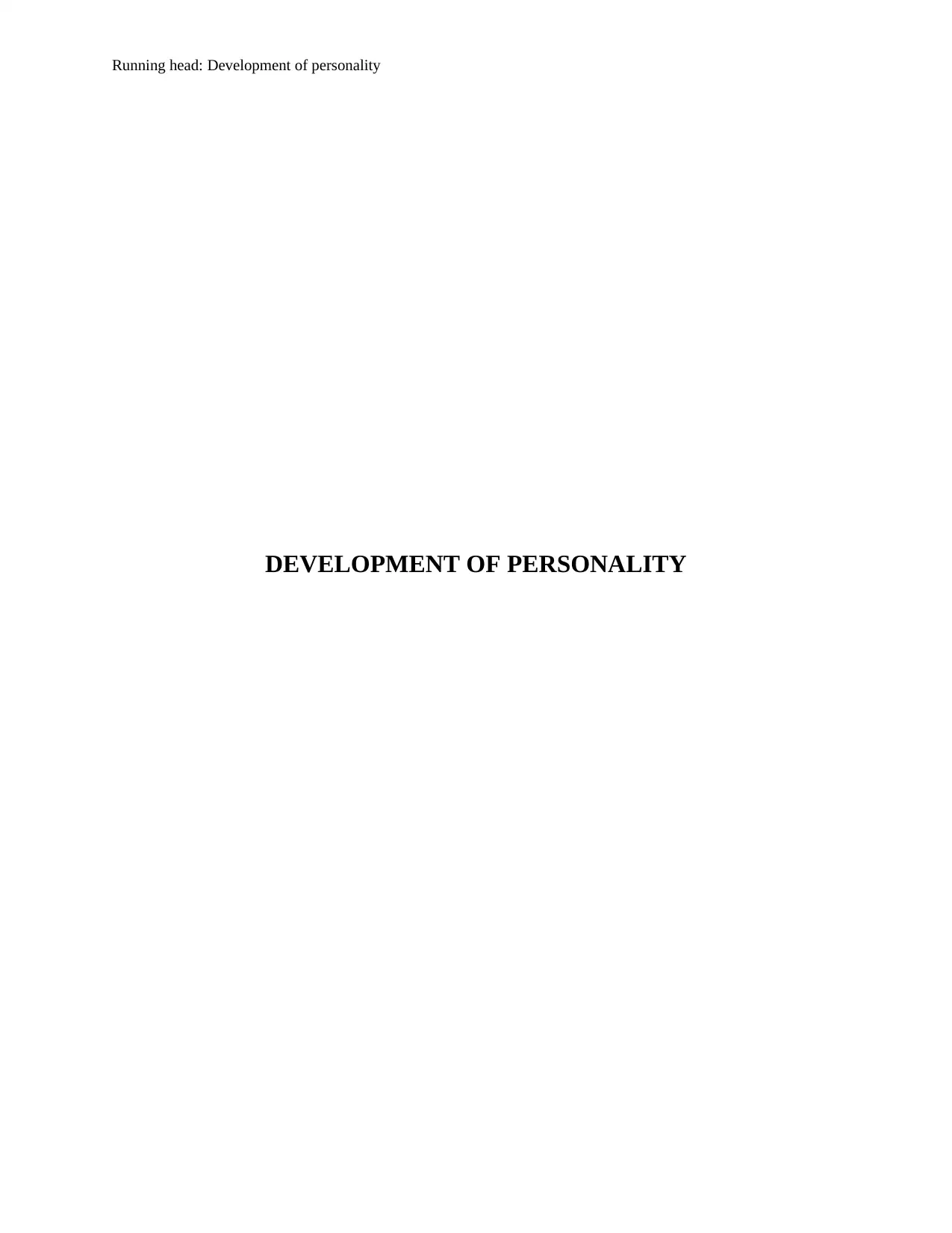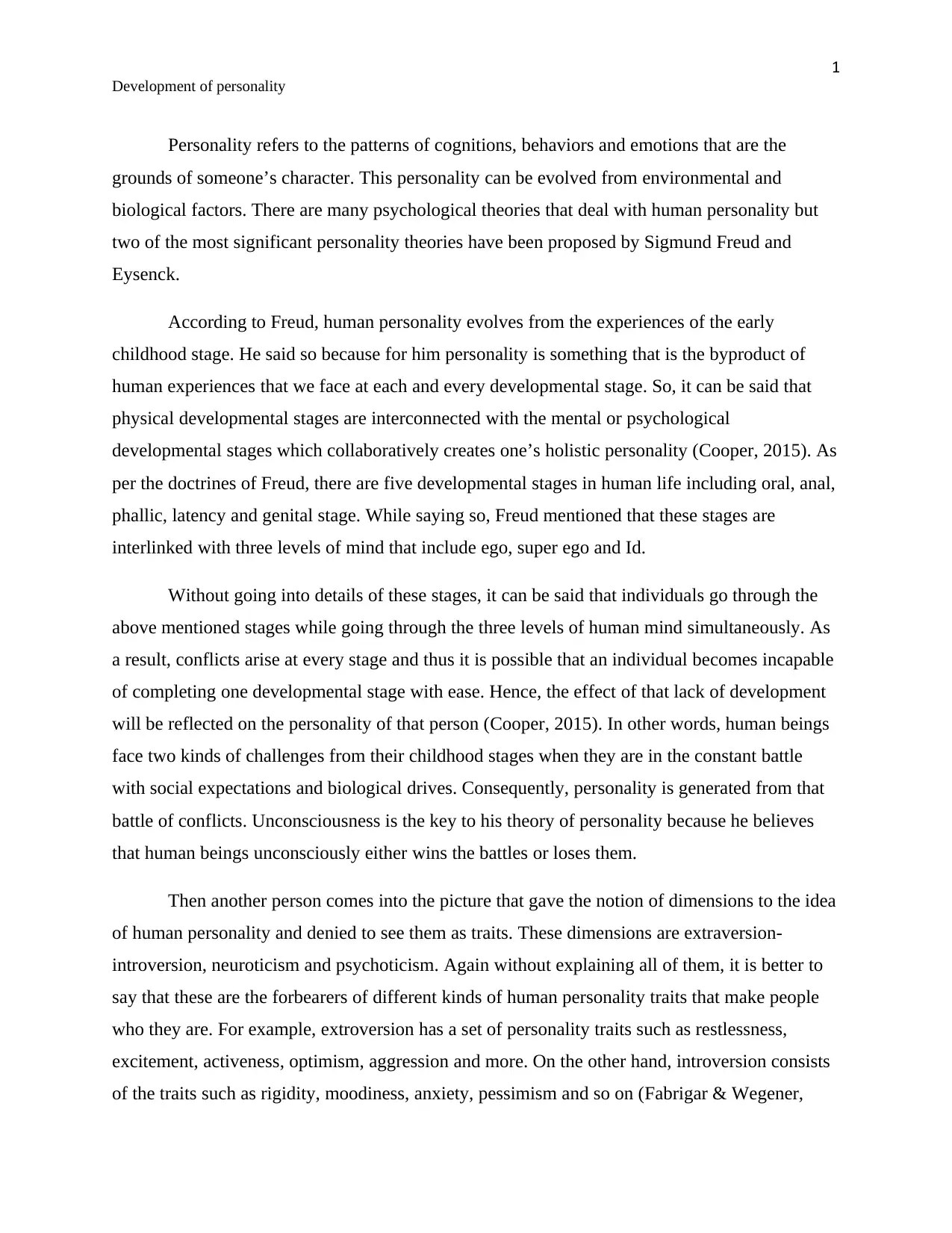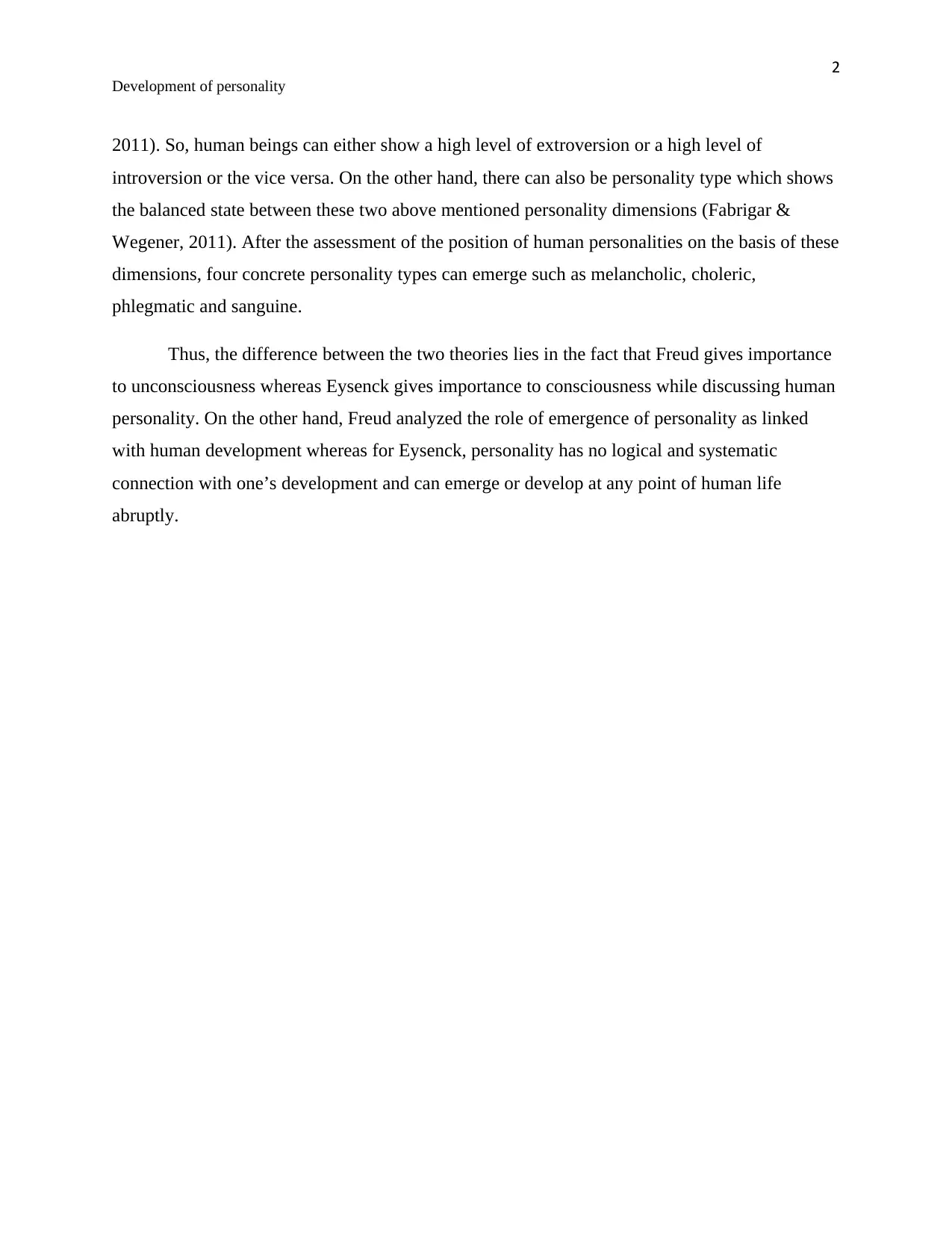Development of Personality: Comparing Freud and Eysenck's Perspectives
VerifiedAdded on 2023/04/23
|4
|678
|160
Essay
AI Summary
This essay provides a comparative analysis of Sigmund Freud's and Eysenck's theories on personality development. Freud's theory emphasizes the role of early childhood experiences and unconscious processes, outlining five developmental stages (oral, anal, phallic, latency, and genital) interconnected with the ego, super ego, and Id. Conflicts during these stages shape personality. Eysenck, on the other hand, proposes that personality is based on dimensions like extraversion-introversion, neuroticism, and psychoticism, which lead to personality types such as melancholic, choleric, phlegmatic, and sanguine. The key difference lies in Freud's focus on the unconscious and developmental stages, while Eysenck emphasizes conscious dimensions and the potential for abrupt personality development at any point in life. This document is available on Desklib, a platform offering a wealth of study resources for students.
1 out of 4










![[object Object]](/_next/static/media/star-bottom.7253800d.svg)